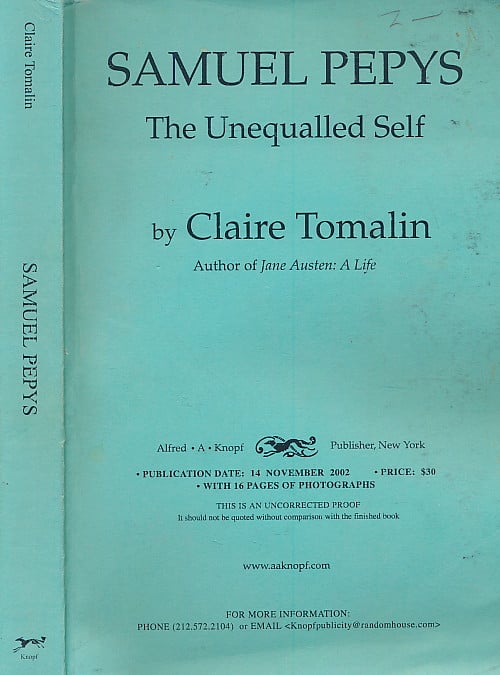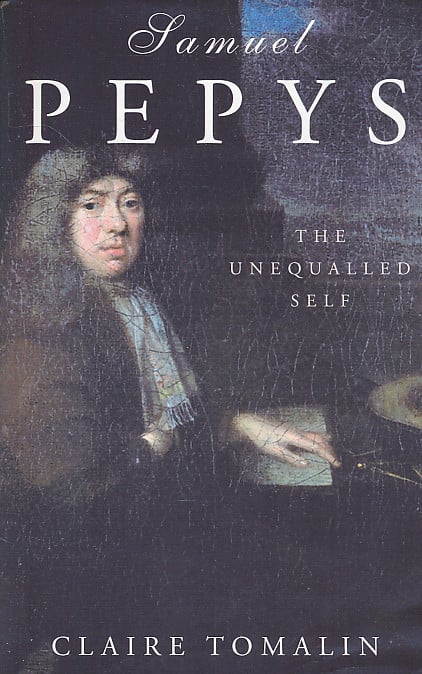Samuel Pepys: The Unequalled Self
€10,00
Na zalihi
| Težina | 795 g |
|---|---|
| Format | 16 × 24 cm |
| Autor | |
| Izdavač | |
| Mjesto izdanja | New York |
| Godina | 2002 |
| Broj stranica | 450 |
| Uvez | Meki |
| Stanje knjige | Vrlo dobro |
The seventeenth century saw a revolution in man’s thought, as Isaac Newton and others began the scientific study of the universe around them. At the same time a shrewd young civil servant in London began to observe, with something of the same dispassionate curiosity, the strange object around which, for him, the universe revolved–himself. For ten years, beginning in 1660, Samuel Pepys secretly kept one of the most remarkable records ever made of a human life. With astounding candor and perceptiveness he described his ambitions and peculations, his professional successes and failures, his pettinesses and meannesses, his tenderness toward his wife and the irritations and jealousies she provoked, his extramarital longings and fumblings, his coolly critical attitude toward the king he served and his watchful adaptation to the corrupt and treacherous life of the court. Pepys’s diary is a magnificent creation. But there is more to Samuel Pepys than his diary, as Claire Tomalin makes clear in this profoundly original biography. Buttressing it with less familiar sources and other contemporary material, she is able to illuminate his entire life–as a poor London tailor’s son, as a schoolboy rejoicing at the execution of Charles I, as an aspiring clerk with good connections who transforms himself into a royalist, escorting Charles II to England for the Restoration. Then there is the bureaucrat heroically working against the odds to create a modern navy, finding his way through the dangerous years of political and religious conflict (even, at one point, being charged with treason and jailed), peacefully retiring at last with his books and his music and his friends. It is Claire Tomalin’s unique skill as a biographer to achieve extraordinary intimacy with her subject, and Pepys is no exception. To the endlessly fascinating question of his relations with women, for example, she brings the same insight and freshness of approach that distinguished such highly praised books as Jane Austen and The Invisible Woman. At the same time, the historical context is never less than brilliantly evoked. The result is exemplary, by far the most revealing–and readable–portrait of the greatest diarist in the English language, a man of unmatched interest and importance.


